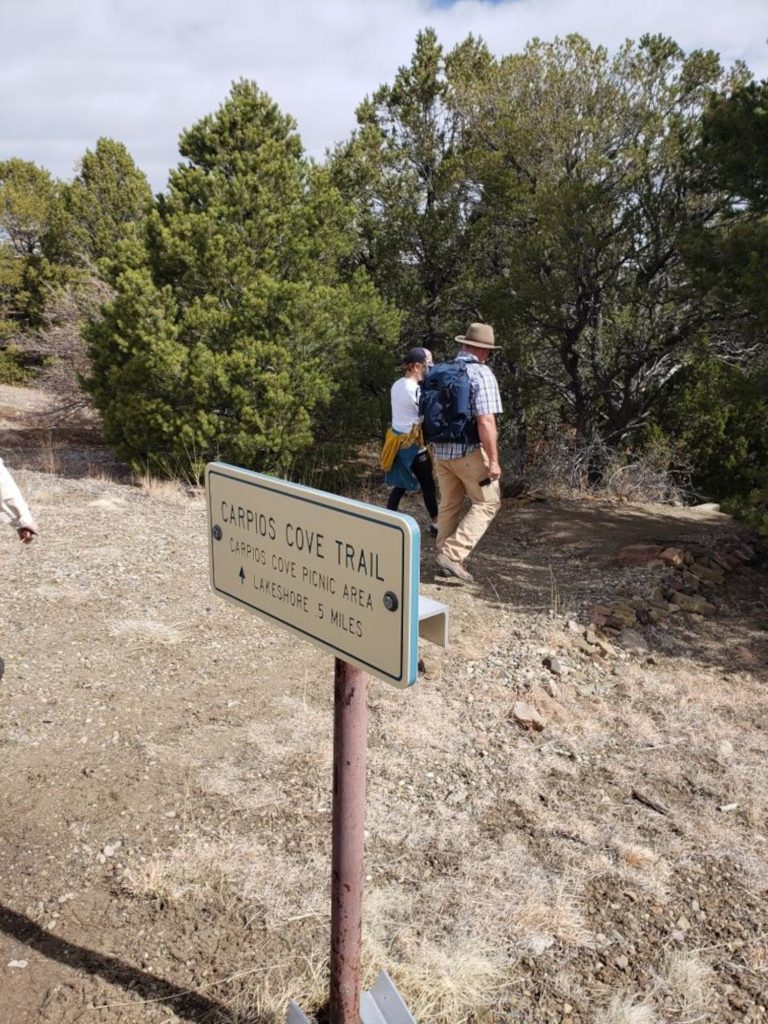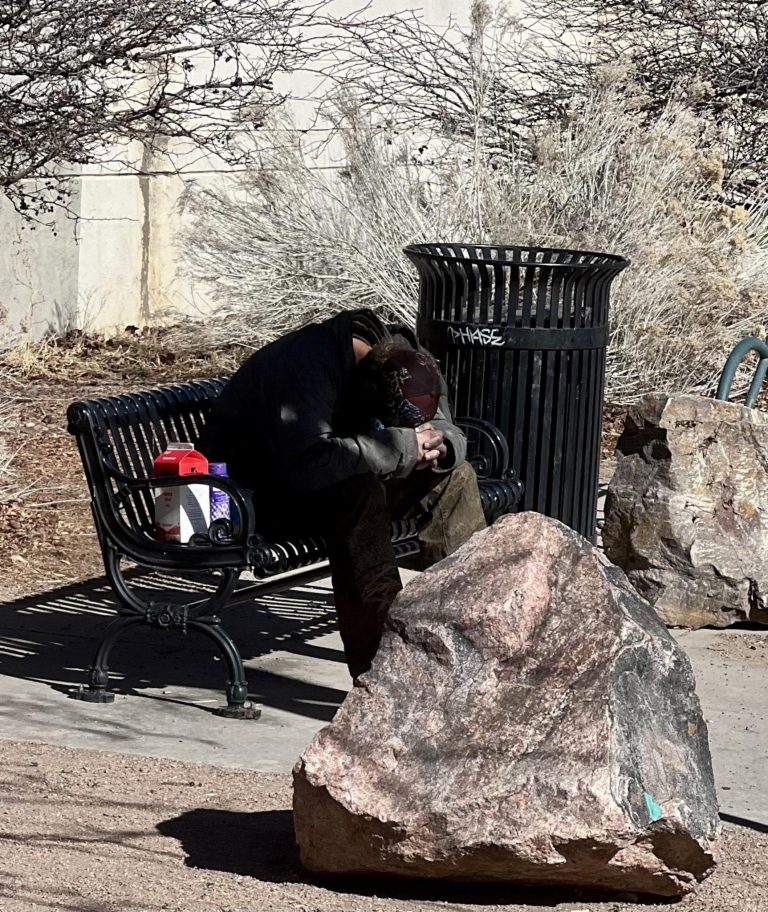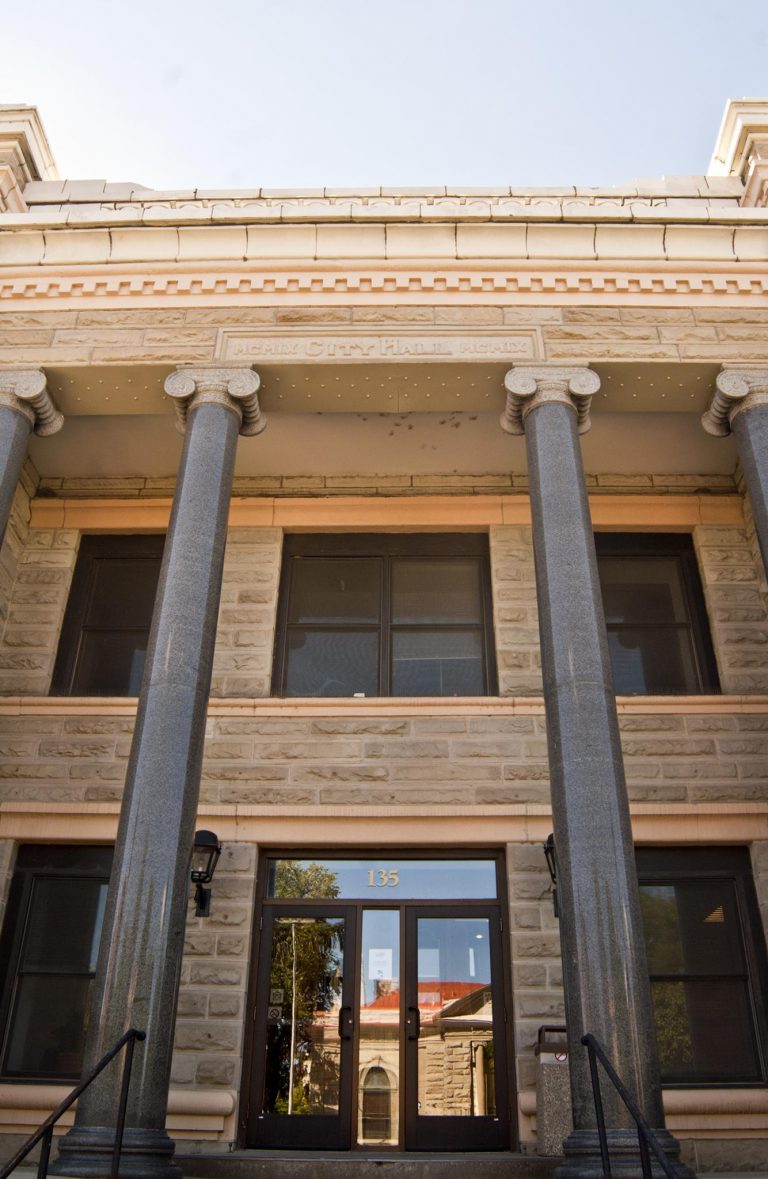T’Naus Nieto
The Chronicle-News
Although there aren’t any candidates running for office for municipality positions in Trinidad this upcoming election on November 5, there is one local ballot measure, City of Trinidad Ballot Issue 2A, which seeks to increase the lodging tax from 3% to 6% for people staying at local hotels and short term rentals. The City hopes this will increase city funding for amenities without adding an extra tax burden on locals.
The Trinidad Trails Alliance went on a public information and education campaign to inform voters why it’s in their best interest to vote “yes” on 2A. Jennifer Green and Melissa Toering of the TTA sat down with The Chronicle-News for an interview to discuss the topic and provide depth and insight.
How and why did you get involved with 2A?
Toering: There was a call to the community to get involved in campaigning and supporting 2A. TTA responded because we believe developing and maintaining our outdoor recreation is important.
Why specifically is it an important aspect?
“Well, we’re supportive of the lodging tax as being earmarked for projects that TTA supports.
What projects specifically?
Green: You’ll see in the language of the ballot measure where the funds will be spent. This is written into the ballot measure that funds will be spent in varying percentages for tourism marketing and advertising and personnel expenses related to tourism… Another 30% of the funds will go toward maintaining and improving quality-of-life programs, including recreation programs for youth. 10% will support arts and cultural events and facilities. So, all of those expenditures relate to enhancing Trinidad’s quality of life for locals and our status as a tourist destination for visitors.
Please tell me a little bit about yourselves and some of your backgrounds.
Toering: I’ve been a resident of Trinidad for four years and a visitor for longer than that. I have gotten myself involved in the community through a variety of volunteer opportunities, most notably Trinidad Trials Alliance. It’s an important aspect of community development for me and what brings me here today.
Green: I’ve been in Trinidad for 30 years. I’m a former educator. I taught at a lot of local schools. I’m the founder and current director of Trinidad Trails Alliance, which grew out of a local community meeting about three years ago. Mel was present at that meeting, so I’d say a cofounder. I’m a Graduate of the Trinidad State College trail building program and former chair of the parks and recreation advisory board.
Do you believe 2A supports the draw of tourism to Trinidad?
Toering: “We do. We believe that people are already coming to visit Trinidad, and we have more to offer that will support both locals and tourists in between those visits, as well as enhance tourist visits here. We’re at a hot spot situated between two state parks, with a river running through our community. We have a host of outdoor assets already here. But people don’t necessarily know how much is available within the footprint of the Trinidad community.
Green: I think everybody’s heard that marijuana revenue is drying up, so we’re committed to the vision of Trinidad being a tourist destination. And that outdoor recreation economy will be vital to Trinidad’s overall economic health. That said, this is not just about tourists. These funds will go to create amenities for locals to enjoy as well. But locals won’t pay for it. The visitors will.
Could a tax increase be a disincentive for visitors?
Green: The average hotel stay is about $85 to $90 a night. So, a 3% increase would add about $2.75 to their hotel bill per night. So, it’s not asking for a lot of money from anybody, and it’s not asking for any money from locals.
With increased funding to improve amenities and fund advertising, and amenities and ads drawing more tourism, is there a sort of economic loop?
Green: It’s sort of a self-sustaining loop.
Toering: I don’t think it’s quite a circular economy, but it’s moving in that direction… I think most of that incentive money is in that first 35% breakdown, the biggest portion, and that’s about advertising what we already know we have and making that more readily accessible. And accessibility is a big part of Trinidad Trails Alliance’s mission. We have wonderful amenities here, and people may not know about them… So, I think advertising what we already have is a big part. However, 30% of the total is earmarked specifically for investment in our existing facilities and the development of existing and potentially new ones, especially when it comes to our youth programs. So there are incentives, but there’s also a reinforcement of our existing infrastructure.
Why do you think a similar ballot measure in the past failed to garner enough votes to pass?
Green: I suspect that there wasn’t a lot of information out there for the public to explain how this ballot measure works, and people are leery of increasing taxes. I don’t suspect everybody understood that this wouldn’t tax locals. It’s strictly a tax on people who pay their hotel bills.
So, is that why you guys are campaigning?
Green: I’d say we’re on a public information and education campaign that gives us the opportunity to shout out the fact that Trinidad is a unique place in Colorado that has yet to be fully developed as a tourist destination. So, we are poised for a very thoughtful approach to this. We respect and acknowledge the cultural heritage of Trinadad, the agricultural heritage. We know that extraction industries no longer support the economy of Trinidad, mining, gas, and oil alone. So, outdoor recreation, if you look nationwide at how recreation contributes to the national economy, is about $1 trillion. So, when you break that down for the local community, the economic support that outdoor recreation would bring to Trinidad hits people at every level. It’s not just a hotel tax, it’s people visiting our restaurants and bars, people stopping to shop and visit our art galleries, buying gas and groceries. So, we’re at this place in the history of development in Colorado to do this thoughtfully and learn from other communities how to not sacrifice our own local cultural values but enhance our ability to develop and sustain what we call quality of life assets in our town.
Two places in Colorado that Trinidad is comparable to are Grand Junction and Fruta. Both are traditionally ranch and mining gas and oil economies that have recently enhanced their investment in outdoor recreation, and I think it’s paying dividends. Their lodging tax in both of those communities is 6%. If they’re doing things right, 6% is a good number.
Toering: I don’t have the language from the prior ballot initiative, but looking at the current state, I’d say it’s about information, access to information, and confidence in the appropriate spending of that funding, and I think that’s laudable that our community is so interested and invested and monitoring our resources, and I think that is responsive to a historic extractive economy. So, being attentive and thoughtful about how that money is spent is a big attribute of our community. So, I believe that a failure to inform is a bigger part of that past failure than any particular language in the ballot measure before.
What are the points of contention? What about people’s trust concerns with the City on how the increased funds will be spent?
Jenn: I feel like most people I talk to are all in favor of it… There are people questioning accountability and how the City is actually going to spend this money… It’s in the ballot language that expenditures are subject to annual audits. In addition, the City of Trinidad requires a lodging tax advisory board to provide oversight and is also creating an internal lodging tax committee within the City to provide additional internal scrutiny and track lodging fund dollars from end to end.
Do you have a message to the community? Anything you’d like to say?
Toering: I would invite everyone in the Trinidad community to get out and play. Get familiar with your resources and assets. Go visit the playground, the riverwalk, Wormhole, and the state parks. Take a second to reflect on how they enhance your quality of life, and think about how you want those resources available for generations to come.
Green: As a spokesperson for Trinidad Trails Alliance, I’d say our mission is to gather local volunteers and stewards to support the maintenance and expansion of outdoor recreation activities. And this is for the betterment of all of us. As I mentioned, I have a history as an educator here in town, so when I think about who we serve locally, my former students now have their own kids, providing them with opportunities for a healthy life. I think there’s no arguing that enhancing the quality of life in Trinidad for those who live here is something that everybody can embrace. Because we want our families to stay here and thrive.
The mines aren’t going to do that job for us anymore, gas wells, there’s still some work there. How is Trinidad going to keep people viably employed so they can continue to live a healthy life in here? Outdoor recreation is an answer we can choose if we want and this ballot measure is walking the walk.




